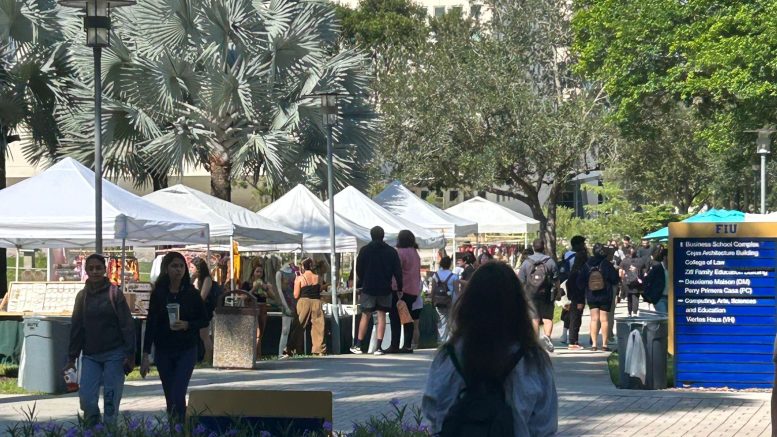Alba Rosa | Assistant News Director
New research conducted by universities in Florida, Texas, New York, and more finds a term called “acculturative stress,” which explains the connection between cultural pressure and stress in Hispanic emerging adults, a community already disproportionately affected by it.
In this research study titled “Acculturative Stress and Self‑rated Health among Hispanic Emerging Adults: Examining the Moderating Effects of the Social Environment and Social Support,” FIU graduate students Deidre Okeke and Lea Nehme collaborated with their mentor, Dr. Miguel Ángel Cano, and students from the University of Miami, the University of South Florida, the University of North Texas Health Center, the University of Texas Southwestern Medical Center, and more.
It examined 200 Hispanics from 18-25 years of age in Miami-Dade County, Florida, and Maricopa County, Arizona, where the percentages are 69% and 31% respectively. It’s the first study acknowledging the different social contexts between Hispanics in those two states, as the Hispanic presence varies.
Okeke, a doctoral epidemiology student at the Robert Stempel College of Public Health and Social Work, was inspired by Cano’s research and now focuses her research on depressive symptomology in the Hispanic population and how they use social media.
“Learning about this interested me and led me to discover the emerging field of digital epidemiology, which focuses on utilizing digital data sources to study health outcomes and behaviors,” she said.
While 64 percent of students at FIU are Hispanic, some students from Hispanic families felt welcomed or comfortable in a city where their culture is practiced. But the same cannot be said for those families living in Arizona. That is when they experience acculturative stress.
Rachel Rodriguez, a journalism student raised in a Cuban household for her whole life, is torn between her Cuban and American identity. Experiencing Miami’s predominately Hispanic culture has helped her appreciate her heritage.
“I call it North Cuba,” Rodriguez said, referring to Miami.
She added that because of the city’s upbringing in the 1970s, when Cubans and other Hispanics migrated here from Latin America, Miami lost its American culture. However, it’s not the same for Hispanics in North Florida, like Tallahassee, where only 7.2 percent of its inhabitants are Hispanic or Latino origin.
“I remember going to Tallahassee and felt like I was in the South,” she said. “Like I crossed the train tracks.”
Rodriguez can also recount an experience that made her feel uncomfortable with her own identity. When she had to take her grandmother to the hospital late at night, Rodriguez struggled to communicate to her grandmother the following steps, as none of the staff at that time spoke Spanish – something she had never encountered.
“What are the odds nobody on that specific floor spoke Spanish?” she said.
To combat this, the article suggests some type of social support (from family, friends, or dedicated groups) will help Hispanic emerging adults better cope with their feelings and avoid or delay poor health consequences caused by acculturative stress. It also helps them stray away from substances.
However, Rodriguez warns that, as Miami becomes more expensive, the Hispanic population who can no longer afford their houses, will leave.
“I don’t want Spanish speakers ever to leave Miami.”






Be the first to comment on "New research finds that some Hispanics suffer “acculturative” stress"